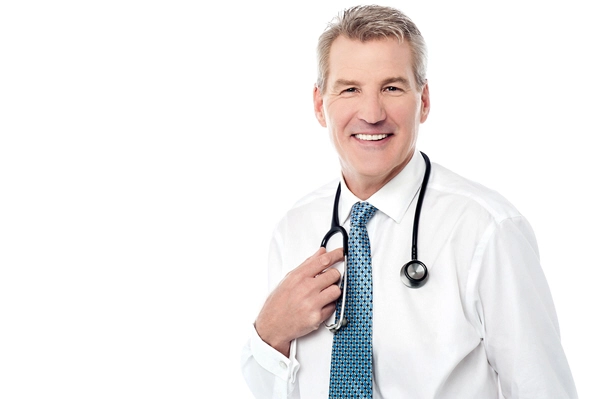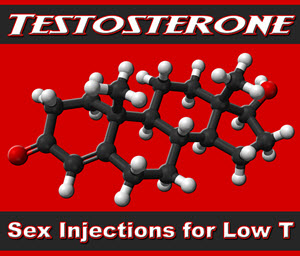Introduction to Genotropin Therapy
Genotropin is a recombinant human growth hormone (rhGH) that has been a cornerstone in the treatment of growth hormone deficiency (GHD) in children and adolescents. Administered through subcutaneous injection, Genotropin helps to stimulate growth and development in individuals who have insufficient levels of growth hormone. The therapy is not only a medical intervention but also a journey that requires a robust support system, particularly from the family, to ensure its success.
The Importance of Family Support in GHD Treatment
The role of family in the treatment of growth hormone deficiency cannot be overstated. Family members are often the primary caregivers and are responsible for the administration of Genotropin. They provide emotional support, monitor the child's progress, and are instrumental in maintaining the regimen's consistency. A supportive family environment can significantly enhance the psychological well-being of the patient, which is crucial for the therapy's overall effectiveness.
Strategies for Enhancing Family Support
To optimize the benefits of Genotropin therapy, it is essential to implement strategies that strengthen family support. Education is the first step; families need to be well-informed about GHD and the specifics of Genotropin treatment. Healthcare providers should offer comprehensive training on injection techniques, potential side effects, and the importance of adherence to the treatment schedule.
Creating a Supportive Home Environment
A supportive home environment is vital for the success of Genotropin therapy. This includes setting up a routine for injections that fits into the family's daily life, ensuring a calm and reassuring atmosphere during the process, and celebrating milestones in the child's growth. It's also important to involve siblings in the process, educating them about their brother's condition to foster empathy and support within the family unit.
Incorporating Psychological Support
Psychological support is a critical component of the treatment plan. Families should have access to counseling services to help them cope with the emotional aspects of GHD and its treatment. Support groups can also be beneficial, providing a platform for families to share experiences and advice. For American males, who may feel pressure to conform to societal expectations of stature and strength, addressing these concerns can be particularly important.
Leveraging Technology for Better Management
In today's digital age, technology can play a significant role in managing Genotropin therapy. Apps and online platforms can help track injection schedules, monitor growth progress, and provide reminders. These tools can also offer educational resources and connect families with a community of support, making the treatment process less isolating.
Collaborating with Healthcare Providers
A strong partnership with healthcare providers is essential for the successful management of GHD. Regular check-ups, open communication, and a collaborative approach to care planning can help tailor the treatment to the individual needs of the patient. Families should feel empowered to ask questions and express concerns, ensuring that they are fully engaged in the treatment process.
Conclusion: A Unified Approach to Genotropin Therapy
In conclusion, the treatment of growth hormone deficiency with Genotropin is a multifaceted journey that requires more than just medical intervention. A supportive family, equipped with the right knowledge and resources, can make a significant difference in the outcome of the therapy. By implementing strategies to enhance family support, we can improve the quality of life for American males with GHD, helping them to grow not just in stature but also in confidence and well-being.
Contact Us Today For A Free Consultation

- Unlocking the Potential of Genotropin for Metabolic Health in American Men [Last Updated On: February 20th, 2025] [Originally Added On: February 20th, 2025]
- Unveiling the Potential of Genotropin: A Comprehensive Review of Clinical Trials and Outcomes [Last Updated On: March 12th, 2025] [Originally Added On: March 12th, 2025]
- Genotropin's Impact on Lipid Profiles in Men with Growth Hormone Deficiency [Last Updated On: March 14th, 2025] [Originally Added On: March 14th, 2025]
- Exploring the Efficacy of Genotropin in Managing Idiopathic Short Stature in American Males [Last Updated On: March 15th, 2025] [Originally Added On: March 15th, 2025]
- Unveiling the Impact of Genotropin on Growth Hormone Deficiency and Sleep Disorders in American Males [Last Updated On: March 16th, 2025] [Originally Added On: March 16th, 2025]
- Exploring the Effects of Genotropin on Lung Function in American Males with Growth Hormone Deficiency [Last Updated On: March 16th, 2025] [Originally Added On: March 16th, 2025]
- Exploring the Role of Genotropin in Treating Growth Hormone Deficiency and Osteoporosis in American Males [Last Updated On: March 16th, 2025] [Originally Added On: March 16th, 2025]
- Exploring the Impact of Genotropin on Exercise Capacity in Growth Hormone Deficient Men [Last Updated On: March 16th, 2025] [Originally Added On: March 16th, 2025]
- Exploring the Psychological Landscape of Genotropin Therapy: Overcoming Barriers for American Males [Last Updated On: March 16th, 2025] [Originally Added On: March 16th, 2025]
- Exploring the Impact of Genotropin on Bladder Function in Men with Growth Hormone Deficiency [Last Updated On: March 16th, 2025] [Originally Added On: March 16th, 2025]
- Genotropin in American Males: Pharmacokinetics, Pharmacodynamics, and Clinical Implications [Last Updated On: March 18th, 2025] [Originally Added On: March 18th, 2025]
- Genotropin's Cognitive Benefits in Growth Hormone Deficient American Males: A Review [Last Updated On: March 18th, 2025] [Originally Added On: March 18th, 2025]
- Genotropin's Impact on Growth Disorders in American Males: Efficacy and Applications [Last Updated On: March 18th, 2025] [Originally Added On: March 18th, 2025]
- Genotropin's Role in Enhancing Quality of Life for American Males with Short Bowel Syndrome [Last Updated On: March 19th, 2025] [Originally Added On: March 19th, 2025]
- Genotropin Therapy Transition for American Males: From Pediatric to Adult Care [Last Updated On: March 19th, 2025] [Originally Added On: March 19th, 2025]
- Debunking Myths: Understanding Genotropin Therapy for American Males [Last Updated On: March 20th, 2025] [Originally Added On: March 20th, 2025]
- Genotropin Therapy for Growth Hormone Deficiency in Elderly Men: Benefits and Management [Last Updated On: March 20th, 2025] [Originally Added On: March 20th, 2025]
- Genotropin's Impact on Cardiovascular Health in American Males with Growth Hormone Deficiency [Last Updated On: March 20th, 2025] [Originally Added On: March 20th, 2025]
- Genotropin Therapy: Enhancing Growth and Quality of Life in American Males [Last Updated On: March 21st, 2025] [Originally Added On: March 21st, 2025]
- Genotropin: Revolutionizing Hypopituitarism Treatment for American Males [Last Updated On: March 21st, 2025] [Originally Added On: March 21st, 2025]
- Genotropin: Enhancing Growth in SGA Children - Mechanism, Efficacy, and Safety [Last Updated On: March 21st, 2025] [Originally Added On: March 21st, 2025]
- Strategies to Enhance Genotropin Therapy Compliance in American Males [Last Updated On: March 21st, 2025] [Originally Added On: March 21st, 2025]
- Genotropin Therapy for American Males: Benefits, Side Effects, and Management Strategies [Last Updated On: March 21st, 2025] [Originally Added On: March 21st, 2025]
- Genotropin's Impact on Body Composition in American Males with Growth Hormone Deficiency [Last Updated On: March 21st, 2025] [Originally Added On: March 21st, 2025]
- Genotropin Therapy Enhances Quality of Life in American Males with GHD [Last Updated On: March 22nd, 2025] [Originally Added On: March 22nd, 2025]
- Genotropin's Impact on Turner Syndrome: Enhancing Life for American Males [Last Updated On: March 23rd, 2025] [Originally Added On: March 23rd, 2025]
- Genotropin: A Key Treatment for Growth Hormone Deficiency Due to Craniopharyngioma [Last Updated On: March 24th, 2025] [Originally Added On: March 24th, 2025]
- Genotropin's Impact on Reproductive Health in American Males with Growth Hormone Deficiency [Last Updated On: March 24th, 2025] [Originally Added On: March 24th, 2025]
- Genotropin's Efficacy in Managing GHD and Diabetes in American Males [Last Updated On: March 24th, 2025] [Originally Added On: March 24th, 2025]
- Genotropin: Cost-Effective GHD Treatment for American Males [Last Updated On: March 24th, 2025] [Originally Added On: March 24th, 2025]
- Genotropin: Enhancing Life for American Males Post-Radiation GHD Treatment [Last Updated On: March 24th, 2025] [Originally Added On: March 24th, 2025]
- Genotropin's Role in Treating Growth Hormone Deficiency in Childhood Cancer Survivors [Last Updated On: March 24th, 2025] [Originally Added On: March 24th, 2025]
- Genotropin Enhances Immune Function in American Men with Growth Hormone Deficiency [Last Updated On: March 24th, 2025] [Originally Added On: March 24th, 2025]
- Genotropin: Enhancing Quality of Life in HIV-Positive Males with Growth Hormone Deficiency [Last Updated On: March 24th, 2025] [Originally Added On: March 24th, 2025]
- Genotropin's Impact on Hearing in American Males with Growth Hormone Deficiency [Last Updated On: March 25th, 2025] [Originally Added On: March 25th, 2025]
- Genotropin: Treating Growth Hormone Deficiency in American Males with Pituitary Tumors [Last Updated On: March 25th, 2025] [Originally Added On: March 25th, 2025]
- Genotropin's Impact on Dental Health in American Males with Growth Hormone Deficiency [Last Updated On: March 25th, 2025] [Originally Added On: March 25th, 2025]
- Genotropin Enhances Exercise Capacity in American Men with Growth Hormone Deficiency [Last Updated On: March 25th, 2025] [Originally Added On: March 25th, 2025]
- Genotropin's Impact on Growth Hormone Deficiency in American Males: Benefits and Considerations [Last Updated On: March 25th, 2025] [Originally Added On: March 25th, 2025]
- Genotropin Enhances Skin Health in American Males with Growth Hormone Deficiency [Last Updated On: March 25th, 2025] [Originally Added On: March 25th, 2025]
- Genotropin Therapy: Enhancing Growth in American Boys with Hormone Deficiency [Last Updated On: March 25th, 2025] [Originally Added On: March 25th, 2025]
- Genotropin Therapy for American Males: Nutritional Strategies for Optimal Growth [Last Updated On: March 26th, 2025] [Originally Added On: March 26th, 2025]
- Genotropin: Treating Growth Hormone Deficiency in American Males Post-TBI [Last Updated On: March 26th, 2025] [Originally Added On: March 26th, 2025]
- Personalizing Genotropin Therapy for American Males with Growth Hormone Deficiency [Last Updated On: March 26th, 2025] [Originally Added On: March 26th, 2025]
- Managing Growth Hormone Deficiency Transition with Genotropin in American Males [Last Updated On: March 26th, 2025] [Originally Added On: March 26th, 2025]
- Genotropin's Impact on Hair Growth in American Men with Growth Hormone Deficiency [Last Updated On: March 27th, 2025] [Originally Added On: March 27th, 2025]
- Genotropin Therapy for Growth Hormone Deficiency in American Males with Sickle Cell Disease [Last Updated On: March 27th, 2025] [Originally Added On: March 27th, 2025]
- Genotropin Therapy for American Males with Growth Hormone Deficiency and Epilepsy [Last Updated On: March 27th, 2025] [Originally Added On: March 27th, 2025]
- Genotropin: Enhancing Growth and Life Quality in American Males with GHD and ADHD [Last Updated On: March 27th, 2025] [Originally Added On: March 27th, 2025]
- Strategies to Boost Adherence to Genotropin Therapy in American Adolescent Males [Last Updated On: March 27th, 2025] [Originally Added On: March 27th, 2025]
- Genotropin Enhances Sleep Quality in American Men with Growth Hormone Deficiency [Last Updated On: March 27th, 2025] [Originally Added On: March 27th, 2025]
- Genotropin Therapy in American Males: Long-Term Benefits and Essential Follow-Up Care [Last Updated On: March 27th, 2025] [Originally Added On: March 27th, 2025]
- Genotropin's Impact on Emotional Well-Being in Growth Hormone Deficient American Boys [Last Updated On: March 27th, 2025] [Originally Added On: March 27th, 2025]
- Genotropin Improves Vision in American Men with Growth Hormone Deficiency: Clinical Insights [Last Updated On: March 27th, 2025] [Originally Added On: March 27th, 2025]
- Genotropin's Impact on Growth Hormone Deficiency in American Males with Cystic Fibrosis [Last Updated On: March 28th, 2025] [Originally Added On: March 28th, 2025]
- Genotropin's Efficacy in Treating GHD in American Males with Rheumatoid Arthritis [Last Updated On: March 28th, 2025] [Originally Added On: March 28th, 2025]
- Genotropin's Impact on Growth Hormone Deficiency in American Males with Down Syndrome [Last Updated On: March 28th, 2025] [Originally Added On: March 28th, 2025]
- Genotropin: Managing Growth Hormone Deficiency and Asthma in American Males [Last Updated On: March 28th, 2025] [Originally Added On: March 28th, 2025]
- Genotropin's Impact on Kidney Function in American Males with Growth Hormone Deficiency [Last Updated On: March 28th, 2025] [Originally Added On: March 28th, 2025]
- Genotropin's Role in Treating GHD in American Males with ASD: Efficacy and Considerations [Last Updated On: March 28th, 2025] [Originally Added On: March 28th, 2025]
- Overcoming Psychological Barriers to Genotropin Therapy in American Males [Last Updated On: March 30th, 2025] [Originally Added On: March 30th, 2025]
- Genotropin Therapy for Growth Hormone Deficiency in American Males with Thyroid Disorders [Last Updated On: April 1st, 2025] [Originally Added On: April 1st, 2025]
- Genotropin's Role in Managing GHD and CFS in American Males: Efficacy and Implications [Last Updated On: April 1st, 2025] [Originally Added On: April 1st, 2025]
- Genotropin: A Promising Treatment for Growth Hormone Deficiency in Obese American Males [Last Updated On: April 1st, 2025] [Originally Added On: April 1st, 2025]
- Genotropin Therapy: Managing Growth Hormone Deficiency in American Males [Last Updated On: April 4th, 2025] [Originally Added On: April 4th, 2025]
- Genotropin's Efficacy in Treating GHD in Fibromyalgia Patients: A Comprehensive Review [Last Updated On: April 5th, 2025] [Originally Added On: April 5th, 2025]
- Genotropin Enhances Lung Function in Growth Hormone Deficient American Males: A Study [Last Updated On: April 6th, 2025] [Originally Added On: April 6th, 2025]
- Enhancing Genotropin Therapy Outcomes Through Effective Communication Strategies for American Males [Last Updated On: April 9th, 2025] [Originally Added On: April 9th, 2025]
- Genotropin's Impact on Liver Function in American Males with Growth Hormone Deficiency [Last Updated On: April 9th, 2025] [Originally Added On: April 9th, 2025]
- Genotropin's Role in Managing Growth Hormone Deficiency in American Males with MS [Last Updated On: April 9th, 2025] [Originally Added On: April 9th, 2025]
- Genotropin Therapy for GHD in American Males: Ethical Considerations and Responsibilities [Last Updated On: April 9th, 2025] [Originally Added On: April 9th, 2025]
- Genotropin: A Dual Therapy for GHD and Osteoporosis in American Males [Last Updated On: April 10th, 2025] [Originally Added On: April 10th, 2025]
- Genotropin's Impact on Joint Health in American Men with Growth Hormone Deficiency [Last Updated On: April 10th, 2025] [Originally Added On: April 10th, 2025]
- Genotropin's Positive Impact on Digestive Health in American Males with GHD [Last Updated On: April 11th, 2025] [Originally Added On: April 11th, 2025]
- Navigating Cultural Barriers to Genotropin Therapy for American Males [Last Updated On: April 11th, 2025] [Originally Added On: April 11th, 2025]
- Genotropin: Treating Growth Hormone Deficiency and Anemia in American Males [Last Updated On: April 11th, 2025] [Originally Added On: April 11th, 2025]
- Genotropin Use in American Males with GHD and Hypertension: Benefits and Risks [Last Updated On: April 12th, 2025] [Originally Added On: April 12th, 2025]
- Genotropin's Role in Treating GHD and Improving Sleep in American Males [Last Updated On: April 14th, 2025] [Originally Added On: April 14th, 2025]
- Genotropin's Impact on Bladder Function in American Men with Growth Hormone Deficiency [Last Updated On: April 15th, 2025] [Originally Added On: April 15th, 2025]
- Genotropin's Impact on GHD and Migraines in American Males: Efficacy and Safety [Last Updated On: April 16th, 2025] [Originally Added On: April 16th, 2025]
Word Count: 552



















